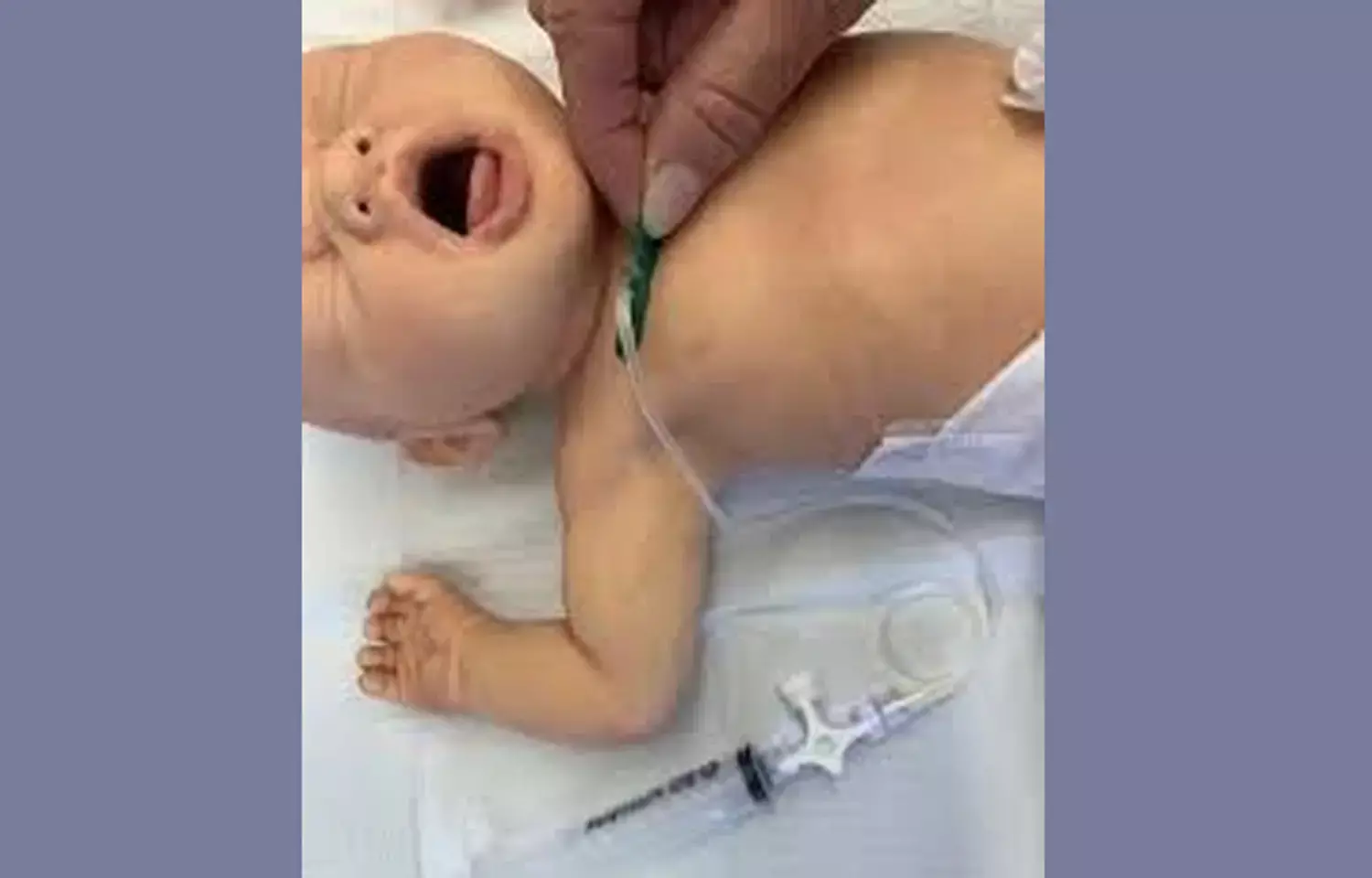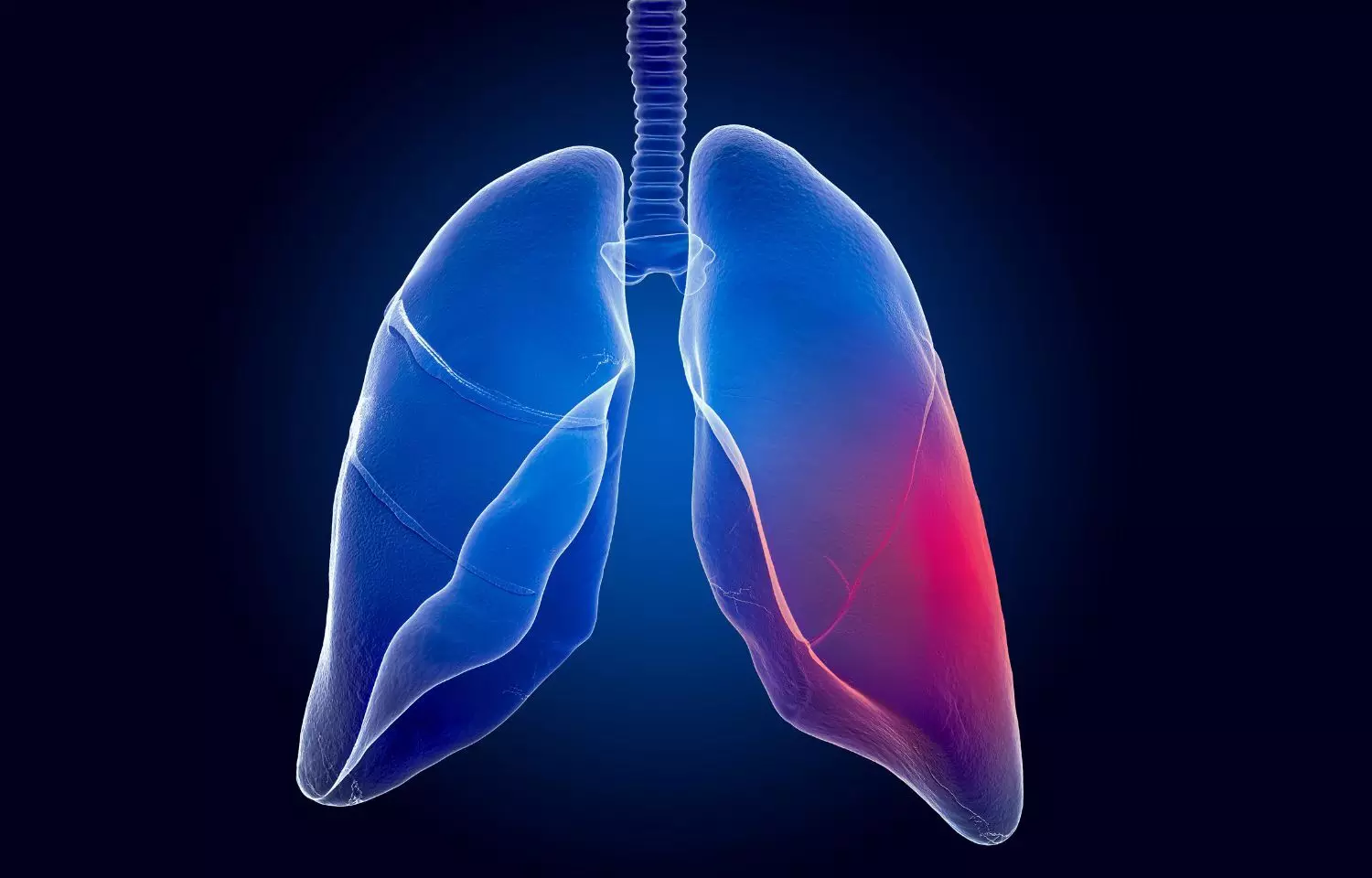- Home
- Medical news & Guidelines
- Anesthesiology
- Cardiology and CTVS
- Critical Care
- Dentistry
- Dermatology
- Diabetes and Endocrinology
- ENT
- Gastroenterology
- Medicine
- Nephrology
- Neurology
- Obstretics-Gynaecology
- Oncology
- Ophthalmology
- Orthopaedics
- Pediatrics-Neonatology
- Psychiatry
- Pulmonology
- Radiology
- Surgery
- Urology
- Laboratory Medicine
- Diet
- Nursing
- Paramedical
- Physiotherapy
- Health news
- Fact Check
- Bone Health Fact Check
- Brain Health Fact Check
- Cancer Related Fact Check
- Child Care Fact Check
- Dental and oral health fact check
- Diabetes and metabolic health fact check
- Diet and Nutrition Fact Check
- Eye and ENT Care Fact Check
- Fitness fact check
- Gut health fact check
- Heart health fact check
- Kidney health fact check
- Medical education fact check
- Men's health fact check
- Respiratory fact check
- Skin and hair care fact check
- Vaccine and Immunization fact check
- Women's health fact check
- AYUSH
- State News
- Andaman and Nicobar Islands
- Andhra Pradesh
- Arunachal Pradesh
- Assam
- Bihar
- Chandigarh
- Chattisgarh
- Dadra and Nagar Haveli
- Daman and Diu
- Delhi
- Goa
- Gujarat
- Haryana
- Himachal Pradesh
- Jammu & Kashmir
- Jharkhand
- Karnataka
- Kerala
- Ladakh
- Lakshadweep
- Madhya Pradesh
- Maharashtra
- Manipur
- Meghalaya
- Mizoram
- Nagaland
- Odisha
- Puducherry
- Punjab
- Rajasthan
- Sikkim
- Tamil Nadu
- Telangana
- Tripura
- Uttar Pradesh
- Uttrakhand
- West Bengal
- Medical Education
- Industry
An early IV-to-oral antibiotic switch equivalent to Full IV course in Neonates: LANCET

A recent study found that an early switch from intravenous-to-oral antibiotic with amoxicillin-clavulanic acid is equally efficacious to a full course of intravenous antibiotics in neonates with a bacterial infection. There was also no increased incidence of adverse events. The study was published in the journal The LANCET Child and Adolescent Health.
Shifting to oral antibiotic therapy from intravenous antibiotic therapy among neonates is not a routine practice in high-income settings due to exposure and safety concerns. Hence researchers conducted a multicenter, randomized, open-label, non-inferiority trial, to assess the efficacy and safety of early intravenous-to-oral antibiotic switch therapy compared with a full course of intravenous antibiotics among neonates with a probable bacterial infection between Feb 8, 2018, and May 12, 2021.
Neonates with a postmenstrual age ≥35 weeks and a postnatal age 0–28 days, with ≥2 kg bodyweight were recruited at 17 hospitals in the Netherlands. Neonates who were on prolonged antibiotic treatment due to a probable bacterial infection were randomly assigned (1:1) to switch to an oral suspension of amoxicillin 75 mg/kg plus clavulanic acid 18·75 mg/kg in a 4:1 dosing ratio, given daily in three doses or continue on intravenous antibiotics as per the local protocol. Both groups were treated for 7 days. Cumulative bacterial reinfection rate 28 days after treatment completion was the primary outcome. A 3% margin was deemed to indicate non-inferiority. So, if the reinfection rate in the oral amoxicillin–clavulanic acid group was less than 3% higher than that in the intravenous antibiotic group the null hypothesis would be rejected. The primary outcome was assessed in the intention-to-treat population who completed the final follow-up visit on day 35 and the per-protocol population. Safety was analyzed in all patients who received at least one administration of the allocated treatment and who completed at least one follow-up visit. Secondary outcomes included clinical deterioration and duration of hospitalization.
Findings:
- Out of 510 neonates, the oral amoxicillin-clavulanic group had 255 neonates and the intravenous antibiotic group had 255.
- After excluding those who withdrew consent (n=4), did not fulfill inclusion criteria (n=1), and lost to follow-up (n=1), 252 neonates in each group were included in the intention-to-treat population.
- The cumulative reinfection rate on day 28 was similar among the group.
- No, statistically significant differences were observed in reported adverse events (127 [50%] vs 113 [45%]; p=0·247).
- In the intention-to-treat population, the median duration of hospitalization was significantly shorter in the amoxicillin–clavulanic acid group than in the intravenous antibiotics group (3·4 days vs 6·8 days; p<0·0001).
Thus, the researchers concluded that an early shift from intravenous-to-oral antibiotic with amoxicillin–clavulanic acid is non-inferior to a full course of intravenous antibiotics in neonates with a probable bacterial infection.
To read the full article, click here: https://doi.org/10.1016/S2352-4642(22)00245-0
Keij FM, Kornelisse RF, Hartwig NG, et al. Efficacy and safety of switching from intravenous to oral antibiotics (amoxicillin-clavulanic acid) versus a full course of intravenous antibiotics in neonates with probable bacterial infection (RAIN): a multicentre, randomized, open-label, non-inferiority trial [published online ahead of print, 2022 Sep 8]. Lancet Child Adolesc Health. 2022; S2352-4642(22)00245-0.
BDS, MDS
Dr.Niharika Harsha B (BDS,MDS) completed her BDS from Govt Dental College, Hyderabad and MDS from Dr.NTR University of health sciences(Now Kaloji Rao University). She has 4 years of private dental practice and worked for 2 years as Consultant Oral Radiologist at a Dental Imaging Centre in Hyderabad. She worked as Research Assistant and scientific writer in the development of Oral Anti cancer screening device with her seniors. She has a deep intriguing wish in writing highly engaging, captivating and informative medical content for a wider audience. She can be contacted at editorial@medicaldialogues.in.
Dr Kamal Kant Kohli-MBBS, DTCD- a chest specialist with more than 30 years of practice and a flair for writing clinical articles, Dr Kamal Kant Kohli joined Medical Dialogues as a Chief Editor of Medical News. Besides writing articles, as an editor, he proofreads and verifies all the medical content published on Medical Dialogues including those coming from journals, studies,medical conferences,guidelines etc. Email: drkohli@medicaldialogues.in. Contact no. 011-43720751




